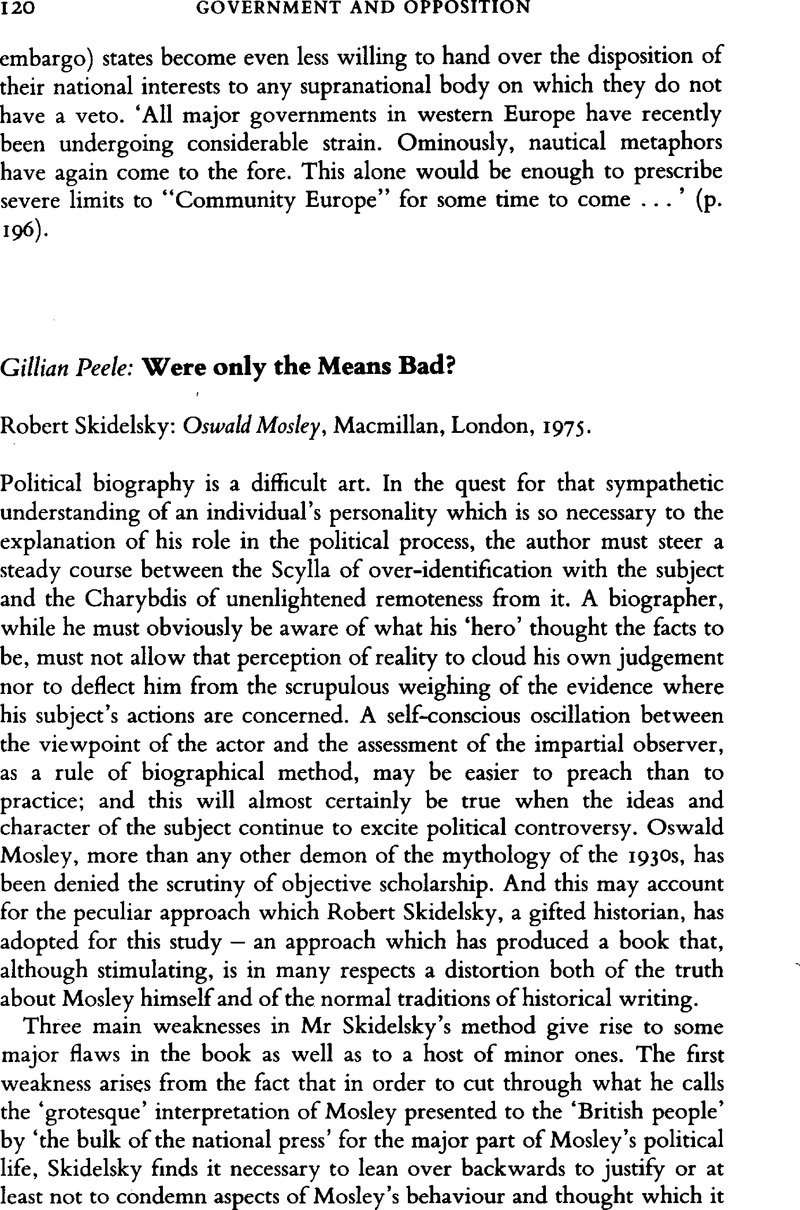No CrossRef data available.
Published online by Cambridge University Press: 28 March 2014

1 Robert Skidelsky, Oswald Mosley, London, 1975, p. 19.
2 Ibid. p. 42; see also the account in Mosley, Oswald, My Life, London, 1968, pp. 40–2Google Scholar.
3 Robert Skidelsky, op. cit. p. 493. (My italics).
4 Skidelsky, Robert, Politicians and the Slump, London, 1967.Google Scholar
5 For a discussion of the role of Lloyd George and the Liberal Summer School sec the illuminating essay by Campbell, John in Peele, G. and Cook, C. (eds.), The Politics of Reappraisal, London, 10 1975.Google Scholar
6 For a discussion of the Zinoviev letter see A. Chester, S. Fay, and Young, H., The Zinoviev Letter, London, 1967 Google Scholar, and N. Grant, ‘The Zinoviev Letter Case’ in Soviet Studies, Vol. XIX, October, 1967. Also the letter from W. E. Butler in Soviet Studies, Vol. XXI, January, 1970.
7 Robert Skidelsky, op. cit., p. 289.
8 For a stimulating treatment of the factors affecting party realignments see James L. Sundquist, The Dynamics of the Party System, Brookings Institution, 1973.
9 For a discussion of Beaverbrook’s personality and political role see Taylor, A. J. P., Beaverbrook, London, 1972 Google Scholar.
10 A few MPs were very closely attached to Beaverbrook, whether for personal reasons, like P. J. Hannon, or financial ones, like W. Grant Morden, and some refused to support Baldwin in his stand against the press Lords. One such MP was Carlyon Bellairs, an early associate of Mosley’s, in the Coefficients and a later sympathizer with his fascism.
11 Mosley’s social encounters are well brought out in the Nicolson diaries which are deposited in their unedited form in Balliol College Library, Oxford. See also Thomas, H., John Strachey, London, 1973 Google Scholar.
12 Harold Macmillan was one of the more able young conservatives who actually envisaged serving in a Mosley cabinet in the period but by the time Mosley had formed the New Party his faith in Mosley was disintegrating. See Macmillan, Harold, Winds of Change, London, 1966 Google Scholar.
13 Quoted in Oswald Mosley, op. cit., p. 385.
14 Ibid.
15 See Robert Skidelsky’s discussion of the historical debate over Hitler’s aims in Chapter XXIII.